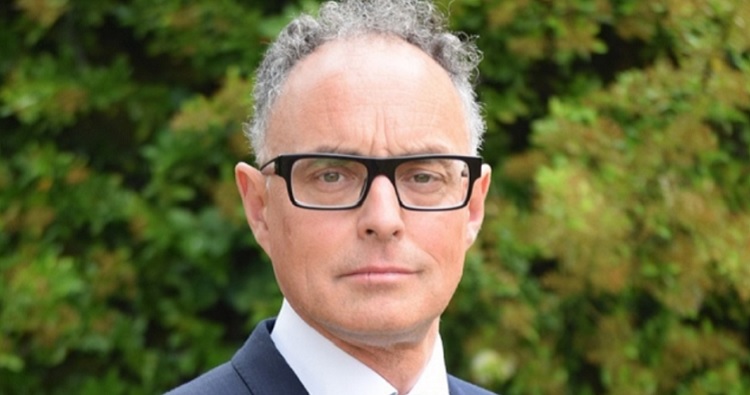UK Ambassador on transparency bill: hindrances to civil society’s functioning “concerning”

Clayton noted since the UK was no longer a member of the EU he could not speak on behalf of the bloc, but added his Government was a “strong supporter” of democracy and human rights around the world. Photo: UK Government
Mark Clayton, the Ambassador of the United Kingdom to Georgia, on Thursday told local media civil society was a “crucial component of democracy” and anything that hindered its ability to function was “concerning”, in comments on the controversial Georgian bill on transparency of foreign influence that sparked public protests this week.
Clayton was asked whether the bill hindered Georgia's democracy and European integration, and said European Union officials, the bloc’s Ambassador Paweł Herczyński and Charles Michel, the President of the European Council, had “clearly stated” their positions on the legislative piece in the context of the country’s European perspective.
Herczyński on Wednesday said Georgia was a “free and democratic country” and it was up to its citizens to decide the laws that would be adopted, adding the EU would respect “any decision” made in the country.
Michel on Tuesday commented on the bill by saying the draft Law on Transparency of Foreign Influence “is not consistent with” Georgia’s European Union aspiration and its accession trajectory.
Clayton noted since the UK was no longer a member of the EU he could not speak on behalf of the bloc, but added his Government was a “strong supporter” of democracy and human rights around the world.
The newly reintroduced Georgian bill calls for registration of non-commercial legal entities and media outlets in the country as “pursuing the interests of a foreign power” if they derive more than 20 percent of their funding from abroad.
It has been brought back by the ruling party after its original version was retracted last year following public protests, and has been met by criticism from the domestic opposition, non-governmental sector and some of Georgia’s foreign partner governments and diplomatic representations in the country.
 Tweet
Tweet  Share
Share